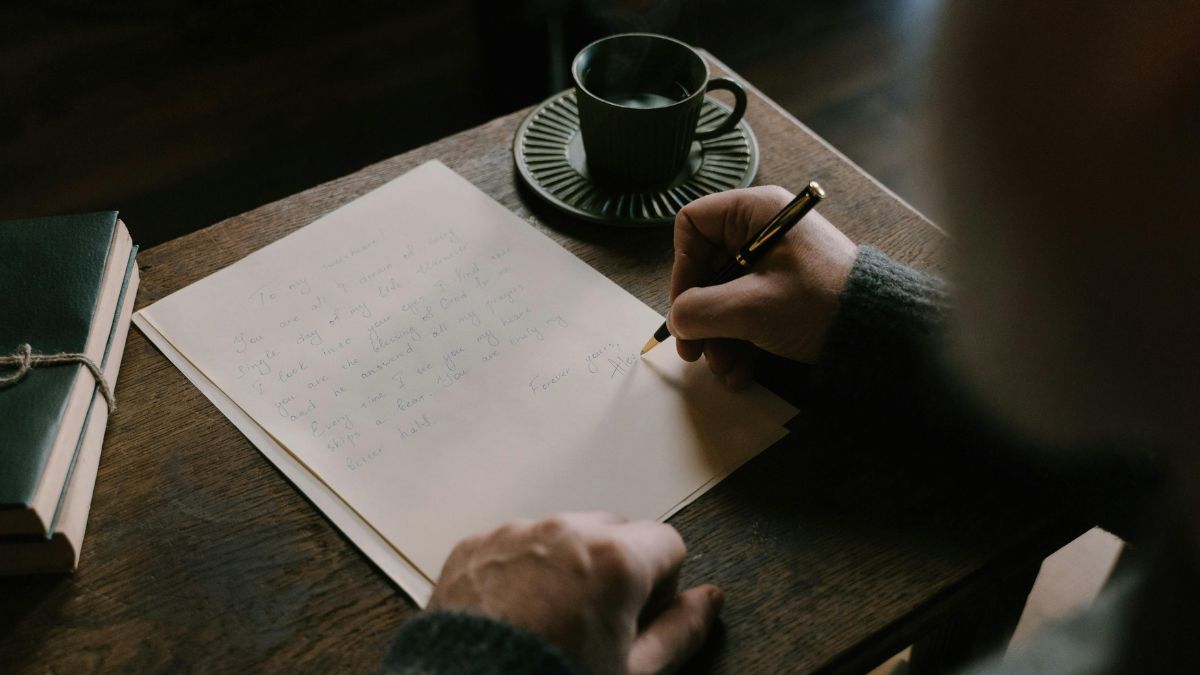Have you ever wondered where you’ll be in five years? Whether you’ll achieve your goals, overcome current challenges, or still cherish the same values? It’s easy to feel disconnected from your future self—like they’re a stranger living a life you can’t yet imagine.
But psychologists have discovered a simple yet profound tool to bridge that gap: writing a letter to your future self. This practice isn’t just a nostalgic exercise—it’s a science-backed strategy to foster self-awareness, motivation, and lasting personal growth.
Let’s explore why this ritual works and how to start your own.
The Science of Connecting with Your Future Self
Humans often struggle to relate to their future selves—a phenomenon psychologists call “temporal discontinuity.” We might procrastinate, overspend, or neglect long-term goals because the “future you” feels abstract. However, research shows that building a connection with your future self can transform decision-making and behavior:
To understand how setting clear goals can enhance your future success, explore How Writing Down Your Daily Goals Enhances Focus and Motivation, According to Psychologists.
- Strengthens Future Self-Continuity: A study in the Journal of Experimental Psychology found that people who visualize their future selves in detail are more likely to save money, exercise, and prioritize long-term goals. Writing a letter creates a tangible link between your present and future identity.
- Boosts Goal Commitment: Psychologist Dr. Hal Hershfield’s research reveals that feeling connected to your future self increases patience and reduces impulsive choices. A letter acts as a “contract” with your future aspirations.
- Enhances Emotional Regulation: Reflecting on your hopes and fears in a letter helps process emotions, reducing anxiety about the unknown. A Psychological Science study linked expressive writing to improved mental clarity and resilience.
How Writing to Your Future Self Drives Growth
1. Clarifies Your Values and Priorities
Writing forces you to articulate what truly matters. Questions like “What do I want to remember about this phase of life?” or “What advice would I give my future self?” reveal core values that guide decisions.
2. Creates Accountability
A letter serves as a personal benchmark. When you eventually read it, you’ll assess whether you’ve stayed true to your goals—a powerful motivator to stay on track.
If you want to visualize your success and stay committed to your aspirations, check out Why Visualizing Success Helps You Stay Focused on Your Goals (According to Psychologists).
3. Encourages Self-Compassion
Acknowledging current struggles in your letter (“I’m doing my best right now”) fosters kindness toward your future self, helping you embrace imperfection as part of growth.
4. Tracks Progress Over Time
Revisiting the letter highlights how far you’ve come, reinforcing resilience and adaptability. Psychologists call this “narrative identity”—the story you tell yourself about your growth.
How to Write a Letter to Your Future Self: A Step-by-Step Guide
1. Choose a Timeframe
Most people write for 1, 5, or 10 years ahead. Pick a span that feels meaningful but not overwhelming.
2. Use Prompts to Spark Reflection
- What are your biggest goals right now?
- What challenges are you facing?
- What lessons do you want your future self to remember?
- What are you grateful for today?
3. Be Honest and Specific
Avoid vague statements like “I hope you’re happy.” Instead, write: “I hope you’ve launched the creative project we’ve been brainstorming.”
Learn how small, consistent actions today can create a lasting impact in The Butterfly Effect of Small Daily Decisions on Long-Term Success.
4. Store It Thoughtfully
- Digital Tools: Use services like FutureMe.org to schedule email delivery.
- Physical Keepsakes: Seal the letter in an envelope with a reminder in your calendar.
5. Set a Reminder to Revisit It
Mark your calendar to open the letter on a specific date. This creates anticipation and accountability.
Real-Life Examples of Future Self Letters in Action
1. Stanford University’s “Future Self” Exercise
Students in Dr. Hershfield’s classes write letters to their future selves to enhance career planning and decision-making. Many report feeling more motivated and focused.
2. Oprah’s Journaling Ritual
Oprah Winfrey has shared that writing to her future self helped her navigate career transitions and stay aligned with her purpose.
3. The “Dear Me” Project
This global initiative encourages people to write letters to their future selves, with many participants citing improved mental health and clarity.
The Long-Term Benefits of This Practice
- Greater Self-Awareness: Articulating your thoughts reveals subconscious beliefs and desires.
- Stronger Motivation: A letter acts as a compass, keeping you aligned with long-term goals.
- Emotional Resilience: Reflecting on past struggles shows how challenges shaped your growth.
- Enhanced Gratitude: Documenting current joys helps future you appreciate life’s journey.
Discover how reflecting on past struggles can shape a powerful personal narrative in Turning Setbacks Into Stories: The Power of Narrative Thinking.
Final Thoughts: Your Future Self Is Counting on You
Writing a letter to your future self isn’t about predicting the future—it’s about creating it. As psychologist Dr. Dan Gilbert, author of Stumbling on Happiness, says: “Human beings are works in progress that mistakenly think they’re finished. Your future self is watching, and waiting, to see what you’ll do next.”
So, grab a pen or open a blank document. Share your hopes, fears, and dreams with the person you’re becoming. Years from now, when you rediscover your words, you’ll realize just how far a little self-reflection can take you.
References:
- Journal of Experimental Psychology – Future Self-Continuity
- Hal Hershfield – Future Self Research
- Psychological Science – Expressive Writing
- FutureMe.org – Digital Letter Tool
- Dan Gilbert – Stumbling on Happiness
Featured Image by cottonbro studio via pexels
